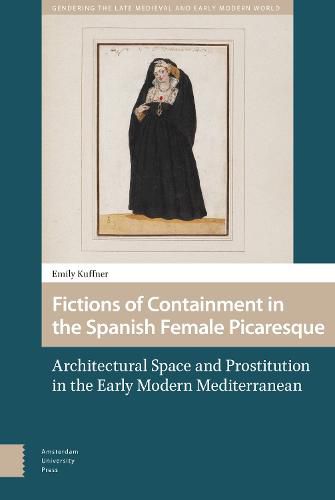Readings Newsletter
Become a Readings Member to make your shopping experience even easier.
Sign in or sign up for free!
You’re not far away from qualifying for FREE standard shipping within Australia
You’ve qualified for FREE standard shipping within Australia
The cart is loading…






This study examines the interdependence of gender, sexuality and space in the early modern period, which saw the inception of architecture as a discipline and gave rise to the first custodial institutions for women, including convents for reformed prostitutes. Meanwhile, conduct manuals established prescriptive mandates for female use of space, concentrating especially on the liminal spaces of the home. This work traces literary prostitution in the Spanish Mediterranean through the sixteenth and seventeenth centuries, from the rise of courtesan culture in several key areas through the shift from tolerance of prostitution toward repression. Kuffner’s analysis pairs canonical and noncanonical works of fiction with didactic writing, architectural treatises, and legal mandates, tying the literary practice of prostitution to increasing control over female sexuality during the Counter Reformation. By tracing erotic negotiations in the female picaresque novel from its origins through later manifestations, she demonstrates that even as societal attitudes towards prostitution shifted dramatically, a countervailing tendency to view prostitution as an essential part of the social fabric undergirds many representations of literary prostitutes. Kuffner’s analysis reveals that the semblance of domestic enclosure figures as a primary erotic strategy in female picaresque fiction, allowing readers to assess the variety of strategies used by authors to comment on the relationship between unruly female sexuality and social order.
$9.00 standard shipping within Australia
FREE standard shipping within Australia for orders over $100.00
Express & International shipping calculated at checkout
This study examines the interdependence of gender, sexuality and space in the early modern period, which saw the inception of architecture as a discipline and gave rise to the first custodial institutions for women, including convents for reformed prostitutes. Meanwhile, conduct manuals established prescriptive mandates for female use of space, concentrating especially on the liminal spaces of the home. This work traces literary prostitution in the Spanish Mediterranean through the sixteenth and seventeenth centuries, from the rise of courtesan culture in several key areas through the shift from tolerance of prostitution toward repression. Kuffner’s analysis pairs canonical and noncanonical works of fiction with didactic writing, architectural treatises, and legal mandates, tying the literary practice of prostitution to increasing control over female sexuality during the Counter Reformation. By tracing erotic negotiations in the female picaresque novel from its origins through later manifestations, she demonstrates that even as societal attitudes towards prostitution shifted dramatically, a countervailing tendency to view prostitution as an essential part of the social fabric undergirds many representations of literary prostitutes. Kuffner’s analysis reveals that the semblance of domestic enclosure figures as a primary erotic strategy in female picaresque fiction, allowing readers to assess the variety of strategies used by authors to comment on the relationship between unruly female sexuality and social order.